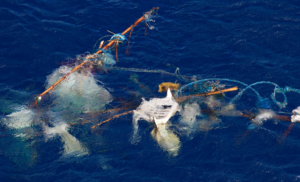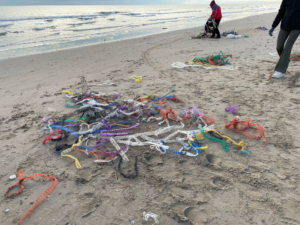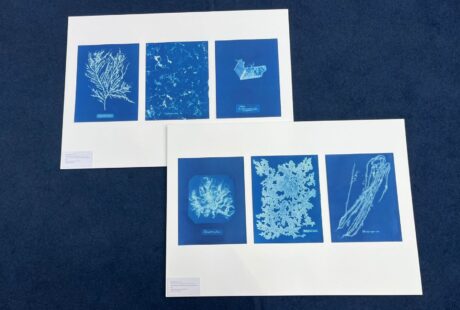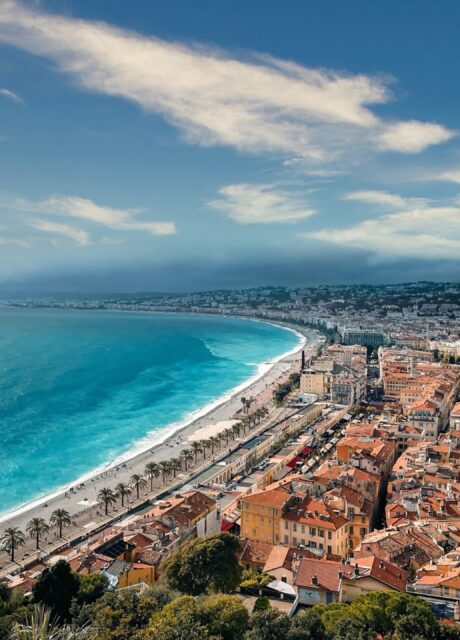On 28 March 2023, the European Parliament’s Fisheries Committee (PECH) held a public hearing on marine plastic pollution and fisheries. Frédérique Mongodin joined a panel of experts from academia, industry, international institutions, and civil society who shared their perspectives with Members of the European Parliament (MEPs) on plastic pollution and fisheries as well as the need for innovation and systemic change to solve the plastic crisis. “Lost fishing gear has multiple impacts on the fishing sector — both environmental and economic,” Frédérique Mongodin (Senior Marine Litter Policy Officer, Seas At Risk) explained. “It’s a double plague.”

PECH Public Hearing ‘ Marine pollution (in particular plastic pollution) and its impact on fisheries ‘ © European Union 2023 – Source : EP
Every year, 4.5 million fishing vessels cast nets, traps, and hooks in the world’s ocean. A substantial amount of this fishing gear is lost, discarded, or abandoned in the ocean. These abandoned tools are called ‘ghost gear’ and have a significant impact on ocean ecosystems and marine life as they continue to catch fish and suffocate ecosystems. Ghost gear also contributes to the transfer of invasive species, habitat damage, microplastics, and much more.
Although educational and efficient if done with minimal environmental impact, ocean clean–ups and “fishing for litter” are not long-term solutions, because they do not address the source of the problem. Biodegradable gear, ocean plastic recycling and gear tracking are also impractical solutions and can be greenwashing, a notion echoed by Ska Keller MEP (Germany, Greens/EFA).
Local organisations have piloted potential solutions to prevent discarded fishing gear, such as Legambiente’s Life Muscles mobile recycling plant and returning scheme for mussel socks (a net used to farm mussels). In the Azores in Portugal, a regional decree is incentivising the local collection and treatment of waste fishing gear to stem its flow into the ocean, something Maria da Graça Carvalho MEP (Portugal, EPP) called hopeful.
However, plastic pollution from fishing cannot be solved from the bottom-up only. Catherine Chabaud MEP (France, Renew Europe) highlighted the need for the ‘polluter pays’ principle, not only for polluting culprits to be held responsible but also to encourage manufacturers to reduce plastic content in fishing gear production, while Grace O’Sullivan MEP (Ireland, Greens/EFA) raised how crucial this was to close the tap on the source of plastic pollution altogether. There needs to be sound waste management onboard fishing vessels and fishers should avoid polluting fishing practices altogether; 25%-50% of dolly ropes (used in bottom trawling, a destructive fishing practice) and 75% of fish aggregating devices are lost by the end of the fishing season.


EU policy-makers can start tackling plastic pollution in fisheries by implementing both the Single-Use Plastic and Port Reception Facility directives. But decision-makers can show true ambition by setting high national collection targets for waste gear, providing funding for research on material innovation, and making the prevention of lost fishing gear a key topic at the Global Plastic Treaty negotiation this spring in Paris, France.
Any true solution to the plastic pollution crisis needs to start at the source with packaging-free, eco-designed and non-toxic fishing gear that has little or no plastic. This gear needs to be durable, repairable, and circular. Ultimately, fisheries need to transition toward low-impact practices and low-plastic tools.
Decision-makers can help speed up this transition by banning bottom trawling, abandoning fish aggregating devices, and other destructive practices, starting in marine protected areas. Furthermore, environmental impact needs to be evaluated when fishing quotas are set, including preventing marine plastic pollution. The biodiversity, climate and pollution crises are interlinked, so intersectional and coherent solutions at all levels are crucial.
“I call on decision-makers to adopt an effective and coordinated action plan to prevent the loss of fishing and aquaculture gear, looking at the complete life cycle of gear from conception to end-of-life.”
Read more about the dilemma of discarded fishing nets in the ocean and our recommendations here.
Feature photo credit WJ Strietman
Posted on: 5 April 2023



